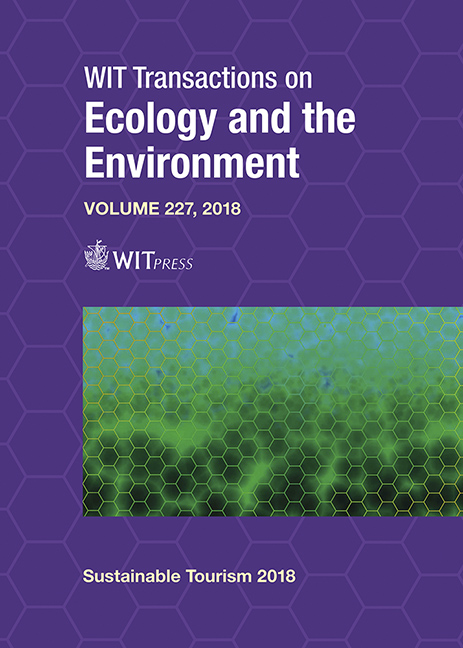TOURISM AND CLIMATE: A SUBSTANTIVE THEORY ON ADAPTATION STRATEGIES IN THE ACCOMMODATION SECTOR IN “ÁGUAS PAULISTA” CIRCUIT, SÃO PAULO, BRAZIL
Price
Free (open access)
Transaction
Volume
227
Pages
12
Page Range
163 - 174
Published
2018
Paper DOI
10.2495/ST180161
Copyright
WIT Press
Author(s)
CRISTIANE N. BRANDÃO, JOSÉ CARLOS BARBIERI, MARCILENE F. ARAÚJO
Abstract
Recently, not only has the interest on climate change been increasing, but also many adaptations and mitigation efforts have been made by organisations and governments around the world to deal with this issue. The adaption to adverse effects of climate change, as well as the reduction of actions that can contribute to these changes, are vital to reducing uncertainties about the future of the humankind. Adaptation and mitigation actions have been necessary facing of the tourism potentialities to contribute to, and to be affected by, climate change. This research sought to analyse how the accommodation sector on the Águas Paulista Circuit (APC) has adapted to climate change based on the meaning the managers have attributed to specific experiences. In this research, we developed a “substantive theory” of adaptation to climate change. In this unique case study, mainly qualitative, and carried out in the APC region, it is worth noting that the primary driver of tourism in the region has been the quality of water from natural sources. Most of the municipalities belonging to the APC area have faced water rationing, therefore they have experienced economic losses in the tourism sector. In this research, the central category has been constituted of three major properties: the ability to cope with the climate change; the strategic adaptations; and the financial factors. It was noticed that the climate change and extreme weather events could interfere with travel decisions. At the same time, it was reported that news broadcast on the water crisis also negatively affected the tourism sector, causing uncertainty and damaging the image of the tourism destination. It is expected this work can contribute to the understanding of the need to adapt to the climate change and extreme climate events because of the risk of affecting business.
Keywords
tourism, climate change, adaptation strategies, water crisis, hotel sector, substantive theory





